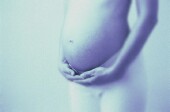New Method Better Predictor of In Vitro Fertilization Success
Four factors were 70% accurate in determining if end result was pregnancy.
|
E-mail this article
Subscribe to news
Printer friendly version
|

(SOURCE: Stanford University, news release, July 1, 2008)
TUESDAY, July 1 (HealthDay News) -- A method that's 70 percent accurate in determining whether a woman undergoing in-vitro fertilization (IVF) will get pregnant has been developed by Stanford University School of Medicine researchers.
They analyzed data from 665 IVF cycles performed at Stanford in 2005 to determine the association between IVF outcomes and 30 variables in patient characteristics, clinical diagnoses, treatment protocol and embryo characteristics.
The Stanford team determined that four factors were most important in determining a woman's chances of becoming pregnant: total number of embryos; number of eight-cell embryos; percentage of embryos that stopped dividing and would die; and the woman's follicle-stimulating hormone level -- an estimate of ovarian function.
When combined, these four factors were 70 percent accurate in determining whether a current IVF cycle would result in a pregnancy.
These variables may prove "critical in counseling patients, improving treatment, and ultimately developing ... more customized treatments," team leader Dr. Mylene Yao, an assistant professor of obstetrics and gynecology, and colleagues wrote in an article published in the July 2 issue of PLoS One.
IVF is an expensive and emotionally challenging procedure, and many couples would welcome information that would help them decide whether they want to commit to an IVF cycle, Yao said.
"People make decisions based on probability. At that point, it's really important to give a more accurate prediction," Yao said in a prepared statement.
She noted more research on this new method is needed before it can be adopted by doctors.
More information
The American Pregnancy Association has more about IVF. 
Copyright © 2008 ScoutNews, LLC. All rights reserved. 
HealthDayNews articles are derived from various sources and do not reflect federal policy. healthfinder.gov does not endorse opinions, products, or services that may appear in news stories. For more information on health topics in the news, visit the healthfinder.gov health library.